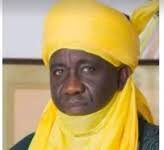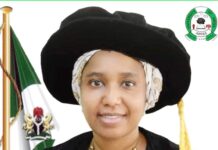TMG Condemns Electoral Violence, Other Malfeasance In 2023 Polls
POLITICS DIGEST – The Transition Monitoring Group (TMG) has condemned the violence, vote buying and vote padding exhibited in the just concluded 2023 general elections.
According to the group, the aforementioned malpractices pose a great threat to the electoral body and the democratic reign by the country.
This was made known in a press statement, signed by the Chairman of the Transition Monitoring Group (TMG) who also doubles as the Executive Director of the Civil Society Legislative Advocacy Centre (CISLAC), Comrade Auwal Ibrahim Musa (Rafsanjani).
The statement highlighted the major setbacks faced with the success of the 2023 Gubernatorial and State House of Assembly Elections across the Geo-Political zones in Nigeria.
Part of the highlighted setbacks are, “Suppression of Voters, Vote Trading, Generalised Violence and Vote Padding, a major pointer to the fall of Democracy in Nigeria”.
With the huge turnout of violence which has skyrocketed in some major parts of the state which has its headquarters in the South Western part of the country, Lagos, Nigeria leading to tribal fight between the Yoruba Race and Igbo Race. The electoral violence had threatened the state of Democracy in the country.
Parts of the statement reads, “The Transition Monitoring Group (TMG) as a foremost election observation group in Nigeria deployed 768 roving observers across 768 Local Government Areas in the country to observe the 18 March gubernatorial and houses of assembly elections. It also set up a central data centre to collect and analyze data observed from the field.
TMG conducted its activities in compliance with the guidelines provided by the Independent National Electoral Commission (INEC), in collaboration with other domestic and international observers.”
Read Also:
TMG notes improvements by the Independent National Electoral Commission (INEC) around logistics delivery and functionality of the BVAS. However, the same cannot be said on election day security as it happened to be one of the most violence ridden elections in its recent history.
The statement further reads: “In the build up to the elections, there were reports of voters’ suppression and intimidation with threats of consequences as issued by well-known loyalists of some highly ranked politicians in the country.
The failure of the security operatives to apprehend and prosecute issuant of such threats, further emboldened them to unleash mayhem on citizens on election day.
“The gubernatorial elections were further challenged by incidents of voter apathy in many states across the country following diminished confidence in the electoral umpire as a result of the outcome of the presidential election.
This becomes a major drawback on the nation’s electoral process considering the increasing spate of voter education in the country.”
Furthermore, TMG observed a sharp departure from the presidential election where identity mobilisation of voters along religious and ethnic lines were visibly noted.
However, voting patterns in the gubernatorial polls as observed in Kaduna, Cross River, Taraba, Delta, Adamawa and a host of other states were free from ethno-religious identity considerations.
This goes to show that electoral campaigns and voter mobilization in Nigeria can be devoid of these elements.
More specifically, TMG’s observation of the elections across the country spotlighted the issues of deployment of logistics, functionality of the BVAS and IReV system, electoral security and vote buying.
The civil society election observation group dispatched 768 roaming observers to 768 local government areas in the nation to monitor the gubernatorial and house of assembly elections on March 18. It also built up a central data centre to examine the data acquired from the field.
The findings show that the March 18 governorship elections were the most violent in recent memory.

















